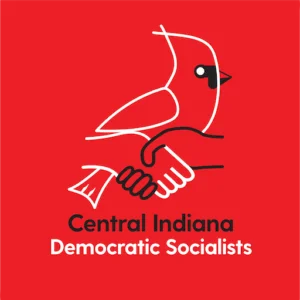

Fight Fascism/Build Socialism: Intro to the GRDSA
Are you fed up with rising rents, low wages, climate inaction, and billionaires hoarding more while we struggle with less? You’re not alone — and you’re not powerless.
We would like to invite you in learning about Democratic Socialism to our Mass Intro event that we are holding on July 27th at the DAAC! Our chapter has existed since 2017 and among other things, we have focused on issues including Labor, Housing, Trans rights, the Environment, Medicare for All, and fighting for the working class in general.
We will have tacos, speakers, and music that we can all sing along to. Come celebrate Zohran Mamdani’s victory in the New York City Mayor’s Democratic Primary and help build our own Socialist movement in West Michigan.
This event is perfect for:
✅ Newcomers curious about what democratic socialism really means
✅ Anyone ready to get involved in building a better, more just world
✅ Existing members looking to reconnect or bring a friend
Together we can create a better world for all of us if we all work towards building our chapter and collaborating on future projects and events.
Solidarity!

The post Fight Fascism/Build Socialism: Intro to the GRDSA appeared first on Grand Rapids Democratic Socialists of America.






Dumped: How Charter Schools Cook Their Books, Choose Their Populations, and Profit


On The Value of Research




Red Catholic: A Life of Contradictions


July Chapter Meeting & Picnic Potluck
For our July Chapter Meeting, we’re having a Picnic Potluck! The Chapter will be providing hot dogs and beverages. We are asking folks to bring a side or dessert. (And camping chair if you have one.)
We’ve secured a backup location in case of bad weather. We’ll make that decision on Saturday. Please RSVP below to receive email updates.

We’re meeting in the evening of Saturday, July 12, at Riverside Park (near the Guild St entrance). Arrive at 3pm, the meeting will start around 4pm. After the meeting, we’ll keep hanging in the park. Feel free to bring a frisbee, hacky sack, or other park activities.
We encourage you to also attend Unionizing: Escalation & Recognition, a part of our Worker’s Power Teach-in series earlier in the day, 12-2pm. The teach-in will be at Fountain Street Church, Room 109.
NOTE: Because we’ll be meeting in the park, we will not be offering a hybrid option. This will be an in-person only meeting. If you cannot attend but want to share your opinions on the agenda items please email info@grdsa.org or post to the GRDSA slack.
The post July Chapter Meeting & Picnic Potluck appeared first on Grand Rapids Democratic Socialists of America.